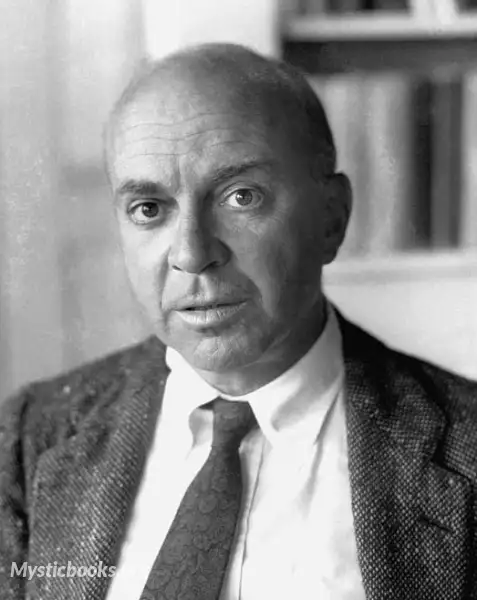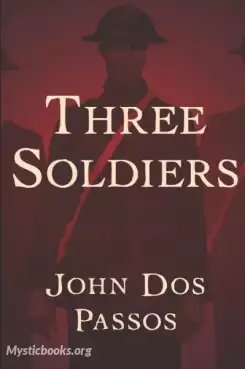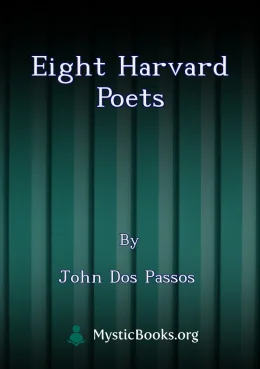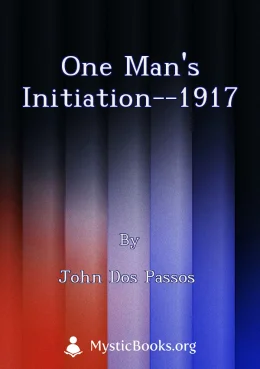
Timeline
Title
Country/Nationality
John Dos Passos
John Roderigo Dos Passos was an American novelist, most notable for his U.S.A. trilogy.
Born in Chicago, Dos Passos graduated from Harvard College in 1916. He traveled widely as a young man, visiting Europe and southwest Asia, where he learned about literature, art, and architecture. During World War I, he was an ambulance driver for the American Volunteer Motor Ambulance Corps in Paris and Italy, before joining the United States Army Medical Corps as a private.
In 1920, his first novel, One Man's Initiation: 1917, was published, and in 1925, his novel Manhattan Transfer became a commercial success. His U.S.A. trilogy, which consists of the novels The 42nd Parallel (1930), 1919 (1932), and The Big Money (1936), was ranked by the Modern Library in 1998 as 23rd of the 100 best English-language novels of the 20th century. Written in experimental, non-linear form, the trilogy blends elements of biography and news reports to paint a landscape of early 20th-century American culture.
Born in Chicago, Dos Passos was the illegitimate son of John Randolph Dos Passos (1844–1917), a lawyer of half Madeiran Portuguese descent, and Lucy Addison (Sprigg) Madison of Petersburg, Virginia. His father was married at the time and had a son several years older than John. As a child, John traveled extensively with his mother, who was an invalid and preferred Europe.
Although John's father married Lucy after the death of his first wife in 1910, when John was 14, he refused to formally acknowledge John for another two years. John Randolph Dos Passos was an authority on trusts, and a staunch supporter of the powerful industrial conglomerates that his son expressly criticized in his fictional works during the 1920s and 1930s.
After he returned with his mother to the US, John Dos Passos was enrolled in 1907 at the Choate School (now Choate Rosemary Hall), a private college-preparatory school in Wallingford, Connecticut, under the name John Roderigo Madison. His parents later arranged for him to travel with a private tutor on a six-month tour of France, England, Italy, Greece, and southwest Asia, to study the masters of classical art, architecture, and literature.
In 1912, Dos Passos enrolled in Harvard College, where he became friends with classmate e.e. cummings, who said there was a "foreignness" about Dos Passos, and "no one at Harvard looked less like an American."
Following his graduation cum laude in 1916, Dos Passos traveled to Spain to study art and architecture. In July 1917, with World War I raging in Europe, Dos Passos volunteered for the Sanitary Squad Unit (S.S.U.) 60 of the Norton-Harjes Ambulance Corps, along with friends Cummings and Robert Hillyer. Later, he also worked as a volunteer ambulance driver with the American Red Cross in north-central Italy.
By the late summer of 1918, Dos Passos had completed a draft of his first novel. At the same time, he had to report for duty with the U.S. Army Medical Corps at Camp Crane in Pennsylvania. On Armistice Day, he was stationed in Paris, where the U.S. Army Overseas Education Commission allowed him to study anthropology at the Sorbonne. Three Soldiers, his novel drawn from those experiences, features a character who has virtually the same military career as the writer and stays in Paris after the war.
Books by John Dos Passos

Three Soldiers
Three Soldiers is a 1921 novel by American writer and critic John Dos Passos. It is one of the American war novels of the First World War, and remains a classic of the realist war novel genre.

Eight Harvard Poets
Eight Harvard Poets is a collection of poetry by eight Harvard University graduates who were active in the early 20th century. The poets included in the anthology are E. Estlin Cummings, S. Foster Damon, J. R. Dos Passos, Robert Hillyer, R. S. Mitche...

One Man's Initiation--1917
One Man's Initiation--1917 is a semi-autobiographical novel by John Dos Passos, first published in 1920. The novel follows the experiences of Martin Howe, a young ambulance driver on the French front during the First World War. Martin's idealistic vi...